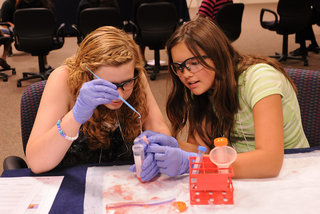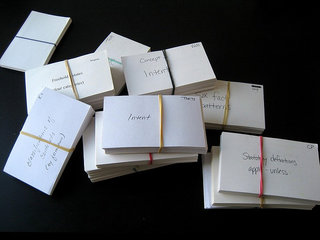Christian, you are a software developer?
I am a software developer "since always". I felt the call to create software already during my undergraduate years. Since a few years I understand what it means to be really professional. I was blind for a very long time. When I changed project and worked with another team, which applied more practises and patterns, I saw what is possible.
What do you consider your biggest success?
I founded the Coding Dojo Vienna. I started it because there was none and I wanted to have a Coding Dojo. In the beginning we just met in one of our meeting rooms after work. We practised a lot. Later a few people from other companies joined. And now it is self-sustained and will survive on its own. I am very proud of it.
 You commented one of my blog posts about diversity. Why does that matter to you?
You commented one of my blog posts about diversity. Why does that matter to you?My attention to diversity was started by Feminist Frequency. The podcasts showed me that there is so much more to feminism than I thought and that I had made mistakes. I was part of most men who do not want to do any harm but do not know better. I excluded or hurt people without knowing and did not want to do that. Like in the Coding Dojo I wanted to improve myself in this area of life as well.
Today feminism is very important to me. With knowing more about the topic I felt comfortable to discuss it with my friends. Now I want to inform others that are similar to me. In the beginning I tried to discuss with random people on the Internet - usually ending in flame wars - but it took too much time. I stopped because I am unable to change random people, nor do I want to do this. I focus on my direct surroundings and try to have impact there.
Diversity on itself is a huge area. I focus on feminism because I do not know much about other areas like racism (*ism) to engage actively. Still, I am happy about others pursuing social justice and - if there is a role model in my vicinity - I am willing to learn more.
What other topics are you concerned about?
There are many things worth complaining nowadays. I leave these fights to the people who know the details. I focus at the things I know enough about to engage actively myself. While I do not have the time and energy to engage actively all the things, I appreciate and support other people engaging these topics. Personal I care for saving the environment and recycling. Also I rather eat vegetables than meat without being a strict vegetarian.
I would like to see more impact on these important topics by my regular work. Do you think that is possible?
1. I see three options to have impact with your work. First you could work directly for a greater goal. For example when I create a web platform for feminism I surely have some impact by influencing society while not fighting at the fore-front.
2. The next, smaller option is more localised. While I do not believe I can make a change when working for a bank, I might make a difference when working on the public user interface of the banking application by making it #genderUX, e.g. by creating gender-inclusive forms. By influencing a single product I still can make people's live better.
3. Finally I can work in my team to raise awareness which might result for not hiring a man next time. This is not related to my job as developer and relies on social interaction. I can always try to influence the people around me.
 Please tell a story of something you did because of your values and social responsibility. What was the problem? How did you react?
Please tell a story of something you did because of your values and social responsibility. What was the problem? How did you react?I have never been hesitant to speak up at my work places, and adding feminist views to my comments fits in naturally. My attitude was never a problem and I am confident that I would find another job if it would not work out. Whenever I see or hear something which I do not like, I speak up while I avoid becoming a hard-liner. My current project does not have any gender related impact so I am working according item three of my list above. As a team member I do have the power to affect hiring decisions.
How do you think about selecting industry, customer and project based on your values and social responsibility?
Even when given the opportunity, I do not want to work for dedicated feminist services, e.g. feminist online magazines, because they do not need my skill in raising internal awareness. Also I do not want to work for companies which are known to be anti-feminist. I do not want to be the leader of a movement, a figurehead. I feel comfortable influencing people around me. Otherwise I do not have any preferences on the selection.
Do you have problems with any industries?
I relate to the “hierarchy of needs”. When I have no other choice I would work for any company. But I am lucky that I consider myself at a higher level of the hierarchy. Given my current position, I would not work for stalking or porn or any project that conflicts my values. Other than that it is difficult for me to think about potential situations without concrete facts.
Did you ever reject a customer or project based on your values?
I never had such a situation where my work conflicted with my values.
On the other hand, what would be companies and projects that you would love to work on?
As I do not engage in feminism at the fore-front I do not look for industries or companies where I can amplify my impact.
Thank you Christian for sharing your views.
















